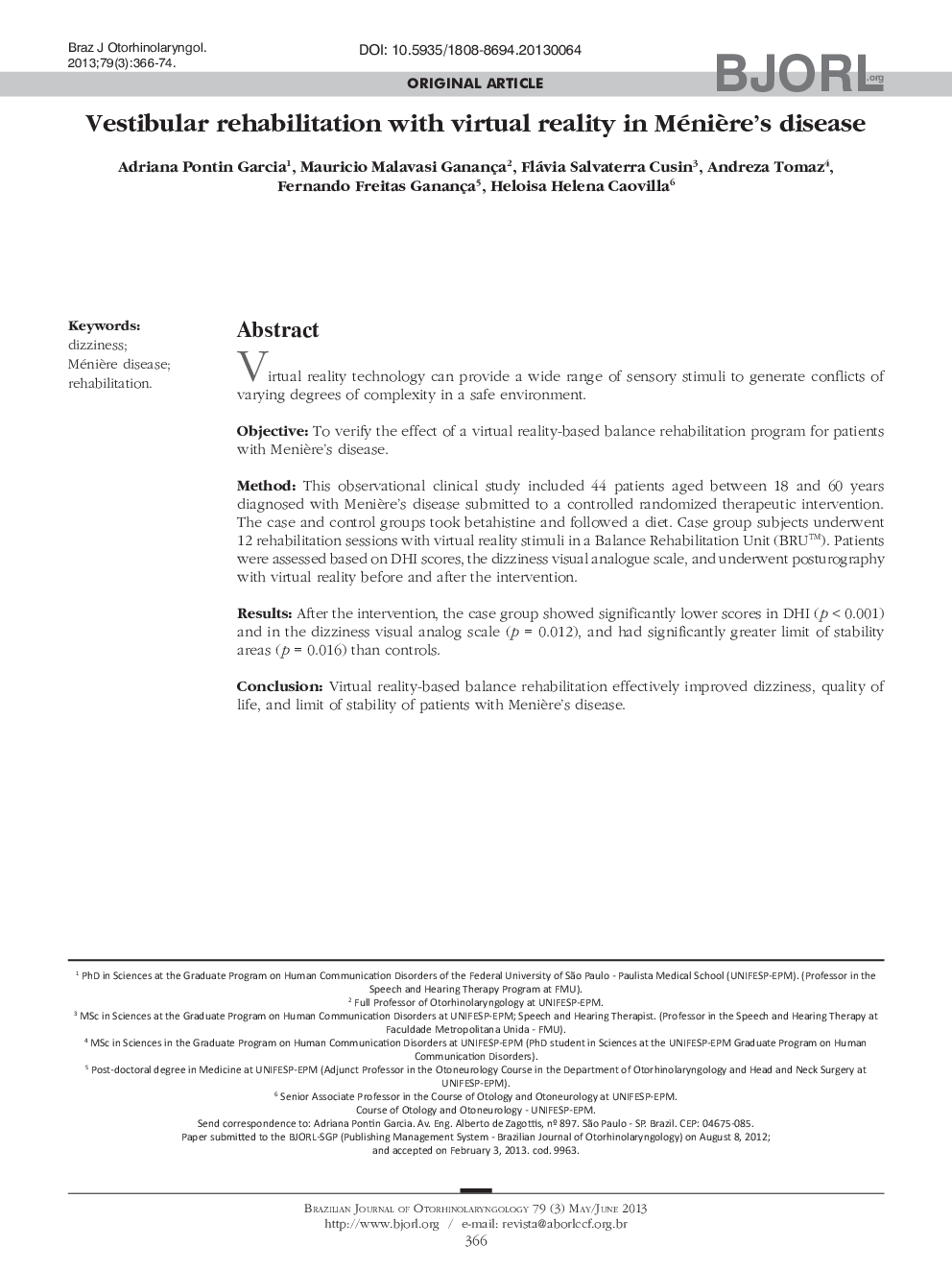| Article ID | Journal | Published Year | Pages | File Type |
|---|---|---|---|---|
| 4106853 | Brazilian Journal of Otorhinolaryngology | 2013 | 9 Pages |
Virtual reality technology can provide a wide range of sensory stimuli to generate conflicts of varying degrees of complexity in a safe environment.ObjectiveTo verify the effect of a virtual reality-based balance rehabilitation program for patients with Menière's disease.MethodThis observational clinical study included 44 patients aged between 18 and 60 years diagnosed with Menière's disease submitted to a controlled randomized therapeutic intervention. The case and control groups took betahistine and followed a diet. Case group subjects underwent 12 rehabilitation sessions with virtual reality stimuli in a Balance Rehabilitation Unit (BRU™). Patients were assessed based on DHI scores, the dizziness visual analogue scale, and underwent posturography with virtual reality before and after the intervention.ResultsAfter the intervention, the case group showed significantly lower scores in DHI (p < 0.001) and in the dizziness visual analog scale (p = 0.012), and had significantly greater limit of stability areas (p = 0.016) than controls.ConclusionVirtual reality-based balance rehabilitation effectively improved dizziness, quality of life, and limit of stability of patients with Menière's disease.
